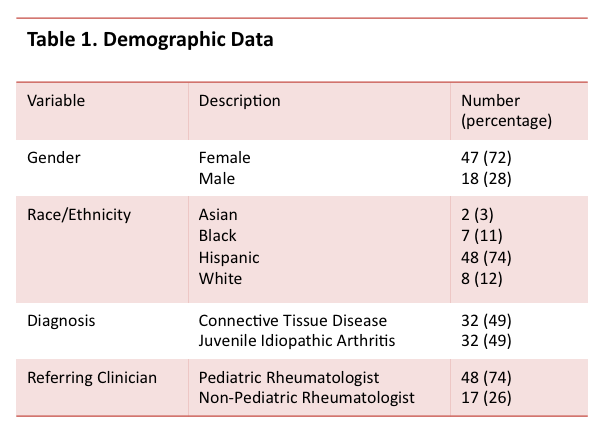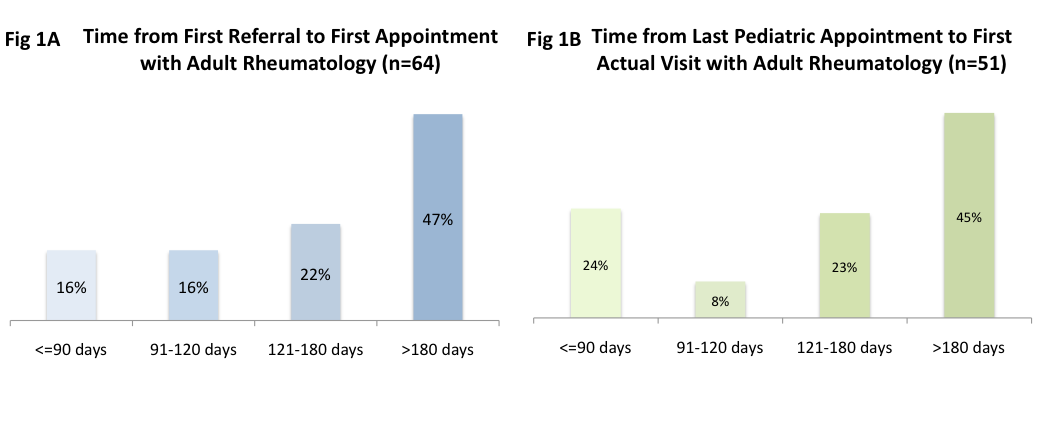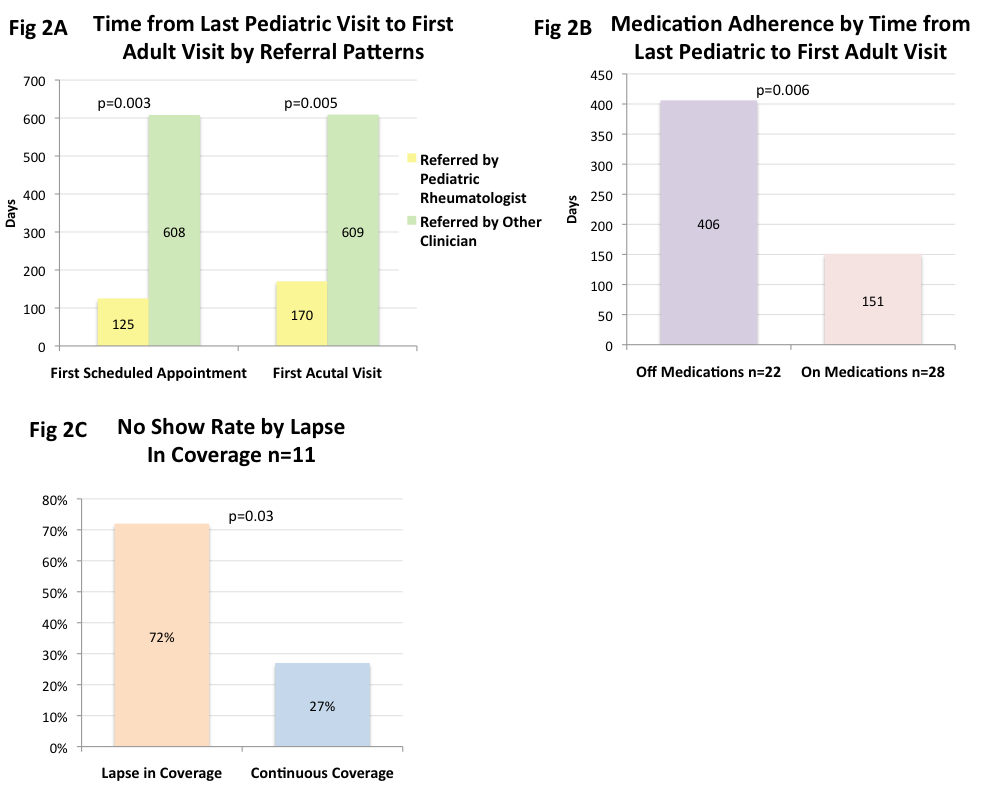Session Information
Session Type: ACR Concurrent Abstract Session
Session Time: 2:30PM-4:00PM
Background/Purpose:
For young adults with a chronic rheumatic illness transitioning from pediatric to adult care, the transfer to new system can be daunting; these challenges are heightened in a socioeconomically at-risk population. As part of a quality improvement project, we characterized the time from referral to first clinic visit with adult rheumatology in a large public safety net healthcare system. Further, we sought to describe factors that may influence time to first visit.
Methods:
A chart review was performed which identified 65 patients between ages 17 and 21 who were transitioning into adult care between 3/2014 and 4/2017. Data regarding time from referral to first scheduled appointment with adult rheumatology, as well as time from last pediatric visit to first adult visit was extracted and examined. Variables potentially related to time to first visit were also obtained and compared using the two-tailed t-test, including information as it related to referral patterns, medication adherence, and no-show rates.
Results:
Refer to Table 1 for demographic information. The average time from first referral to first scheduled appointment with adult rheumatology was 193 days, while time to the first actual visit was 221 days. Nearly half (45%) were seen more than 180 days following their last visit with pediatric rheumatology (Figure 1). Time to adult rheumatology visit was significantly longer if someone other than a pediatric rheumatologist placed the referral to adult rheumatology. Lengthier time between appointments was seen in patients with documented medication non-adherence at the first appointment. Young adults who no-showed to their first adult rheumatology visit were more likely to have had a lapse in coverage compared to those who came to their first scheduled appointment (Figure 2).
Conclusion:
Patients transitioning into adult rheumatologic care in a large public safety net system experience significant delays to their first adult visit, which may adversely impact medication adherence and show rates. We plan to shorten the time to first appointment by blocking slots for transitioning patients. Further, we will disseminate information on how to acquire medical coverage and navigate our safety net system in a timely, coordinated fashion.
To cite this abstract in AMA style:
Bitencourt N, Makris UE, Wright T, Solow EB. Time to First Appointment Among Young Adults Transitioning from Pediatric to Adult Rheumatologic Care in a Safety Net Population [abstract]. Arthritis Rheumatol. 2017; 69 (suppl 10). https://acrabstracts.org/abstract/time-to-first-appointment-among-young-adults-transitioning-from-pediatric-to-adult-rheumatologic-care-in-a-safety-net-population/. Accessed .« Back to 2017 ACR/ARHP Annual Meeting
ACR Meeting Abstracts - https://acrabstracts.org/abstract/time-to-first-appointment-among-young-adults-transitioning-from-pediatric-to-adult-rheumatologic-care-in-a-safety-net-population/



